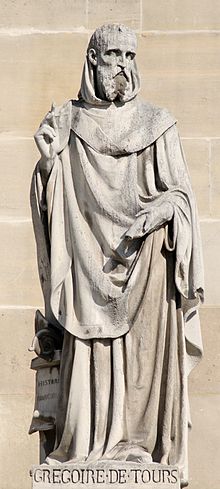

Moreover, Gregory’s work was the first historical composition to be produced in Gaul in one hundred and fifty years. He adds that Gregory’s “boundless faith in miracles is deemed to show that the Gaul he lived in stood closer to the Haitian hinterland than to the fellowship of decorous Christians.” In, Narrators of Barbarian History, Walter Goffart suggests that scholars have tended to see Gregory’s Histories as proof of an increasingly turbulent and violent world. With the paucity of written sources available for the Early Middle Ages, Gregory and Bede have often been seen as representing the dying embers of Classical civilization. ‘If among all our people there is not one man to be found who can write about what is happening today, the pursuit of letters is dead in us!’

‘What a poor period this is!’ they have been heard to say. Many people have complained about this, not once but time and time again. In fact, in the towns of Gaul the writing of literature has declined to the point where it has virtually disappeared altogether. The vision of the Early Middle Ages as an era of decline and pessimism continues to have “a strong hold on the European historical imagination.” The following passage from Gregory’s introduction to the Histories has often been used as proof that the bishop recognized that he lived in an era of decline: Its value, however, as an accurate sources for Merovingian Gaul remains controversial. It is one of the most important medieval histories to survive from Late Antiquity.

Today’s blog take a quick look at some of the disputes surrounding Gregory of Tours’ History of the Franks, composed late in the sixth century.


 0 kommentar(er)
0 kommentar(er)
